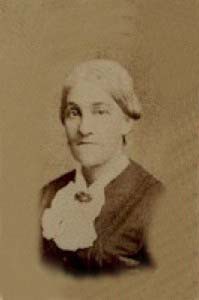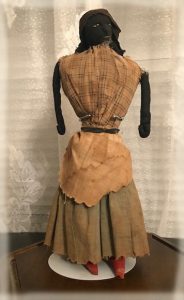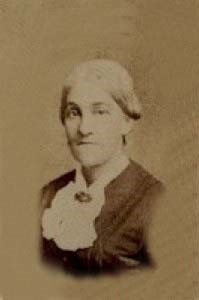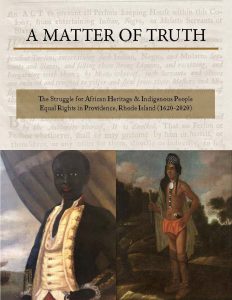 Here are two images I would like to offer for the last day of Black History Month in 2108. My great, great grandmother, Narcissa Forrester and her slave doll (c. 1830) from when she was a little girl in Virginia. The doll was made from the clothing of an enslaved woman in her family household. My ancestor was a free woman of mixed heritage and fellow family members manipulated the slave institution to keep their family intact and unbroken by the brutal system of slavery that engulfed much of early America. While some free people of color held slaves for solely economic benefits, others were simply maintaining their family. This occurrence of slaveholding among African heritage people has not received the amount of historic study and interpretation as a more than common “creative survival” technique that helped to maintain family unity within America’s peculiar institution.
Here are two images I would like to offer for the last day of Black History Month in 2108. My great, great grandmother, Narcissa Forrester and her slave doll (c. 1830) from when she was a little girl in Virginia. The doll was made from the clothing of an enslaved woman in her family household. My ancestor was a free woman of mixed heritage and fellow family members manipulated the slave institution to keep their family intact and unbroken by the brutal system of slavery that engulfed much of early America. While some free people of color held slaves for solely economic benefits, others were simply maintaining their family. This occurrence of slaveholding among African heritage people has not received the amount of historic study and interpretation as a more than common “creative survival” technique that helped to maintain family unity within America’s peculiar institution.
 These images and the rich and complex stories behind them represent the need for more truthfulness and inclusiveness in the understanding of the complexity of African American history. American history is the collective memory of its entire people, black and white, enslaved and free. To better understand our often-chaotic past, we need to better understand the stories of the people. As we begin to interpret history from the perspective of the person rather than the institution, we gain a much deeper appreciation of both history and the perseverance of the people.
These images and the rich and complex stories behind them represent the need for more truthfulness and inclusiveness in the understanding of the complexity of African American history. American history is the collective memory of its entire people, black and white, enslaved and free. To better understand our often-chaotic past, we need to better understand the stories of the people. As we begin to interpret history from the perspective of the person rather than the institution, we gain a much deeper appreciation of both history and the perseverance of the people.
I have found through both professional research and personal experience that a story that begins with human bondage quickly evolves into a story of human perseverance. I have found that for better or worse, far too many historical interpretations focus on the institution of slavery, overshadowing the narratives of African heritage individuals as flesh and blood people, rendering their past lives and accomplishments nearly invisible to the present-day audience. I have also come to appreciate that while the recognition of African enslavement in America as a profound contributing institution to the building of our nation is important, so are the factual stories that portray African heritage people as much more than chattel property.
In preparation for Black History Month for 2019, maybe we need to learn a little less about slavery as an institution and a little bit more about the lives of African heritage people. For it is through their blood, sweat and tears, that our great nation was built. To know more about the African heritage people of the past, is to know more about America today and for the future. Movingly stated in an old Proverb from Ghana:
“It is the human being that counts. I call gold, it does not answer. I call cloth, it does not answer. It is the human being that counts.”
- Saving Old Glory - March 31, 2023
- Keith Stokes receives Outstanding Achievement in Leadership Award - December 22, 2022
- Harriet Jacobs - December 22, 2022



 Click on image to view pdf
Click on image to view pdf
April 2, 2018 at 6:26 pm
Really fascinating! Thank you.